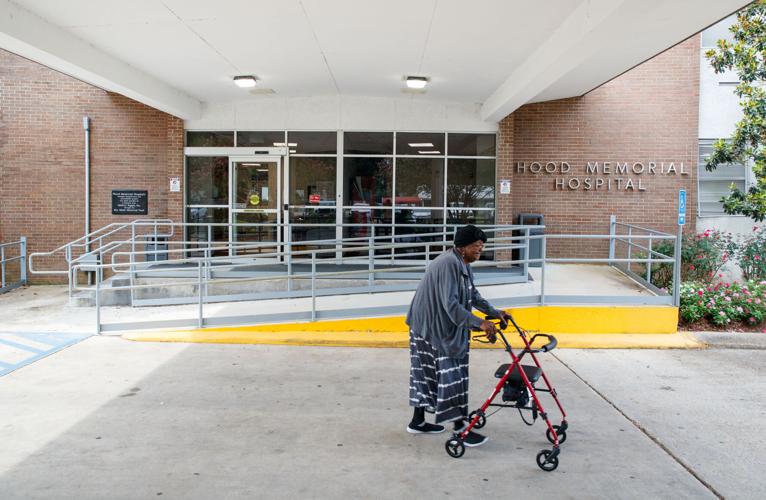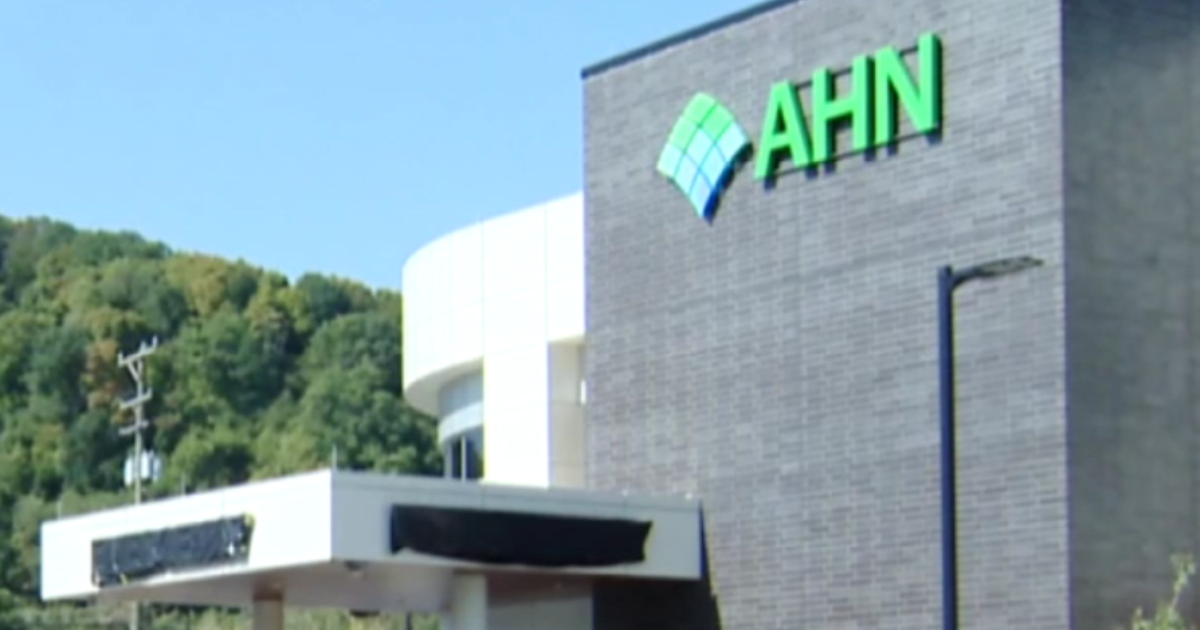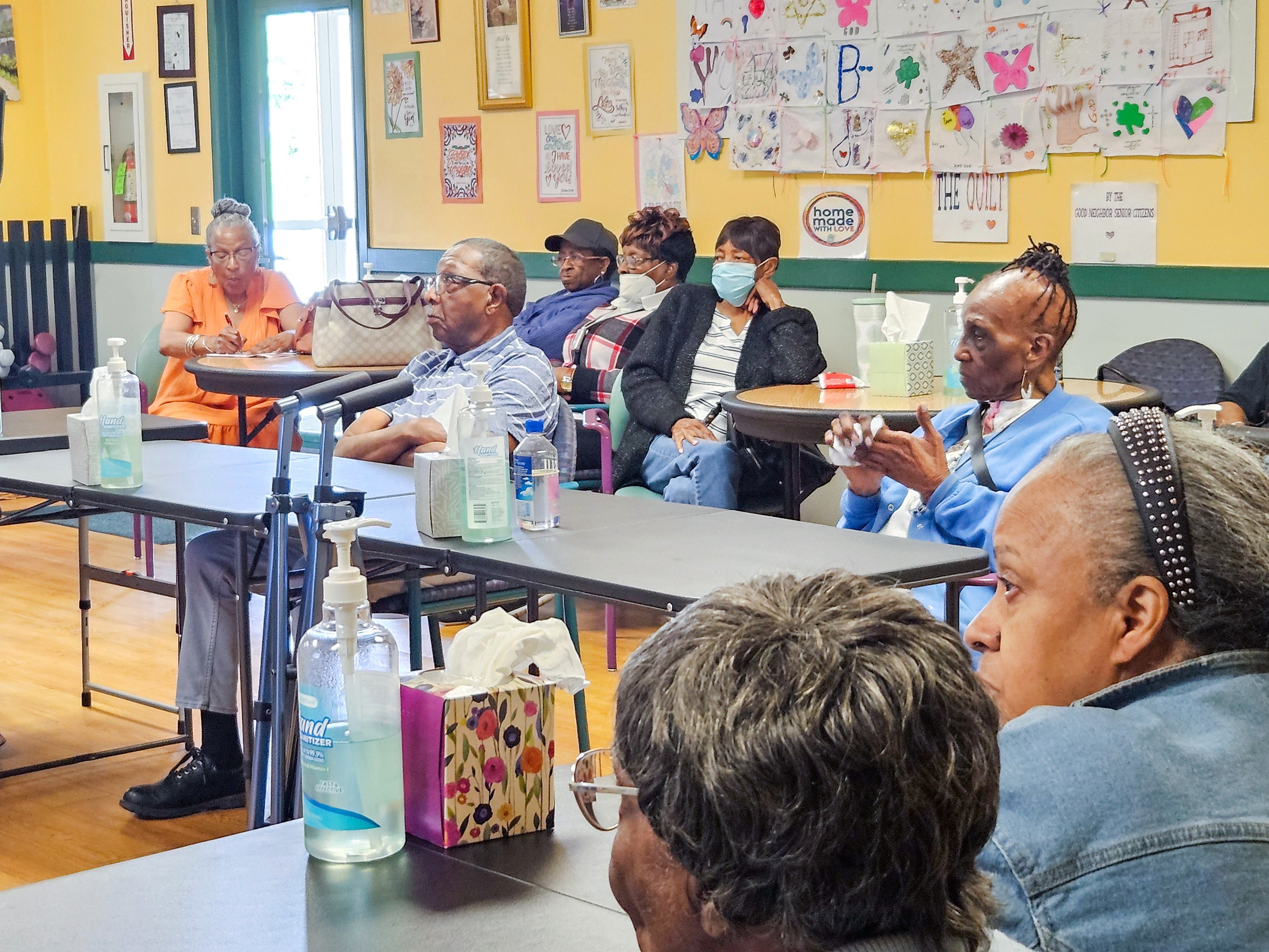Tucked behind a circular drive lined with crepe myrtles and oak trees, Hood Memorial is a two-story brick hospital built in 1971 that anchors a stretch of Amite lined with typical small-town businesses: a local pharmacy, an accountant’s office and a combination chimney sweep, locksmith and nursery.
Inside, the 25-bed hospital offers the only emergency room and inpatient care for northern Tangipahoa Parish. A block away, its rural health clinic is the first stop for many low-income residents seeking help for infections or chronic conditions before they spiral into emergencies.
Hospitals like Hood Memorial are facing deep uncertainty. A massive federal tax and spending bill — dubbed the “Big Beautiful Bill” by the Trump administration — is racing toward a July 4 deadline in the Senate, with Medicaid provisions changing by the hour.
Both the House and Senate reconciliation bills aim to cut hundreds of billions from Medicaid, mainly through work requirements, reduced provider payments and stricter eligibility checks. But the Senate version proposes deeper cuts and is still being revised.
In a blow Thursday to negotiators, the nonpartisan Senate parliamentarian ruled that a key Medicaid provider tax overhaul violated budget reconciliation rules. That means one of the methods they were considering to cut Medicaid spending can’t be used, forcing Republicans to reconsider their strategy.
While it’s still unclear what will make it into the final package, cuts appear all but certain. In Louisiana, where about one-third of the population relies on Medicaid, the impact could be devastating for rural health care.

As possible federal budget cuts loom, rural healthcare facilities like Hood Memorial Hospital in Amite, La., face growing uncertainty, Thursday, June 26, 2025. (Staff photo by David Grunfeld, The Times-Picayune)
STAFF PHOTO BY DAVID GRUNFELD“People who live in rural communities tend to be older, poorer and sicker,” said Mike Whittington, CEO of Hood Memorial Hospital. He said the hospital and clinic play a critical role in caring for patients near their homes, especially in areas where getting to a hospital in a larger community is not easy for many.

Hood Memorial Hospital CEO Mike Whittington discusses the financial uncertainty the rural Amite, La., hospital could face if the sweeping federal budget bill passes as written, Thursday, June 26, 2025. (Staff photo by David Grunfeld, The Times-Picayune)
STAFF PHOTO BY DAVID GRUNFELD“How are you gonna get there? There’s no bus,” Whittington said. “If you pulled up the Uber app, could you find an Uber driver? I don’t think people understand the amount of transportation difficulties that exist.”
Louisiana's Medicaid dependence
Hood Memorial is one of 33 rural hospitals in Louisiana flagged as financially vulnerable if the Medicaid cuts now under debate are enacted. That’s the second-highest number of any state, behind only Kentucky, according to a June letter from Sen. Ed Markey and other Senate Democrats. Nationwide, 338 rural hospitals are at risk.
Among them is Lallie Kemp Regional Medical Center in Independence, Louisiana, a 24-bed critical access hospital with over 40% of patients using Medicaid. If patients lose their health insurance or have to find a way to get to a hospital that is farther away, they will be less likely to seek care until they are really sick.
That might look like putting off preventative screenings like colonoscopies or mammograms, said Dr. John Couk, clinical lead for health care effectiveness at Lallie Kemp, which is managed by LSU Health.
“Rural health care is the crisis,” said Couk. “The big cities are going to have hospitals.”
Unlike urban facilities, rural hospitals typically don’t offer high-revenue procedures like orthopedic and cardiac surgeries, said Walter Lane, a health economist at the University of New Orleans. That makes them vulnerable to even small shifts in Medicaid policy.
“They operate on very, very small margins. When you start making cuts to people on the very brink, going from there to bankruptcy is not very far,” Lane said.
Of the 33 at-risk rural hospitals in Louisiana, 18 fall within the 5th Congressional District, represented by Rep. Julia Letlow, a Republican, who said in a statement that she is “having productive conversations with Louisiana health care leaders about rooting out waste and protecting Medicaid for those who need it most: the disabled, the elderly, children, and people who are physically unable to work.” She added that the House version of the spending bill struck that balance and urged the Senate to follow suit.
Sen. Bill Cassidy, a Republican, also criticized the Senate’s proposal.
“My position is that cuts, and especially drastic cuts to Medicaid have to be avoided. The Senate bill cuts Medicaid too much. I agree with President Trump, the House version is better,” Cassidy wrote on X.
Sen. John Kennedy, a Republican, said that the Senate parliamentarian’s ruling has complicated efforts to pass the reconciliation bill by the July 4 deadline, making a vote less likely. He said failing to preserve Trump-era tax cuts in the bill could hurt the economy.
A lifeline with 'more to lose'
At Hood Memorial hospital and clinic, some of the visits are routine: getting people back on their feet after a long illness, standard check-ups or chronic disease management. Others are not.
Hood has treated patients gored by a pet deer, bitten by snakes, and injured in four-wheeler accidents on back roads. Then there are the strokes, heart attacks and infections where minutes matter. The next hospital is often more than 45 minutes away, depending on where the patient lives.
“There are definitely people walking the streets today that would not be alive were it not for this emergency room,” Whittington said.
At Hood, about 1 in 3 patients are on Medicaid, mirroring the statewide average. At the rural health clinic, Medicaid makes up 47% of patients. Louisiana is the only state in the Deep South that expanded Medicaid, meaning a larger share of its population depends on it.
“There is more to lose, because we have more people enrolled,” said Kevin Callison, a health economist at Tulane University.

Margaret Cooper, 70, sits with her home health aide in Heaven Hill while waiting to be seen by a health professional at Hood Memorial Hospital in Amite, La., Thursday, June 26, 2025. (Staff photo by David Grunfeld, The Times-Picayune)
STAFF PHOTO BY DAVID GRUNFELDMargaret Cooper, 70, leaned on a cane as she stepped outside Hood Memorial to warm up. She was waiting for scans for a suspected blood clot in her leg. She lives in Kentwood, 15 minutes north, and got to her appointment using a Medicaid-funded ride service along with her home health aide.
“I love coming here,” said Cooper, who uses both Medicare and Medicaid. “They’re real patient and nice.”
Tim Cowell, 63, collapsed from heat exhaustion while trying to stay upright long enough to see his son graduate from Southeastern Louisiana University in May. Doctors discovered that bacteria from a dog bite had triggered a dangerous infection that was progressing toward sepsis. A former construction worker on disability after a stroke, Cowell was hospitalized at Hood for an extended recovery and intensive antibiotics.
“They weren’t so overcrowded,” said Cowell, who has a insurance with Humana through Medicaid. “I get more attention and better care here.”

Nurse Scarlett Breckwoldt checks on Tim Cowell, 63, as he sits in a wheelchair receiving IV treatment at Hood Memorial Hospital in Amite, La., Thursday, June 26, 2025. Rural hospitals like Hood face growing uncertainty amid potential federal budget cuts. (Staff photo by David Grunfeld, The Times-Picayune)
STAFF PHOTO BY DAVID GRUNFELDSenate leaders have floated a change to the bill that would create a $15 billion fund over several years to subsidize rural providers who suffer from Medicaid cuts, but that likely is not sufficient, said Callison. A study commissioned by the American Hospital Association estimated that Louisiana rural hospitals could lose $1.875 billion in federal funds over the next decade if the Senate plan moves forward.
Louisiana Hospital Association President and CEO Paul Salles called the proposed fund “inadequate to maintain existing services.”
“We urge Senators to return to the carefully crafted compromise language in the House-passed H.R. 1,” he said.
The House version of the bill imposes Medicaid work requirements. Up to 158,000 Louisianians are likely to lose coverage if that remains.
Regardless of what the final bill looks like, any cuts to Medicaid are threatening to rural providers, said Denaé Hebert, executive director of the Louisiana Rural Health Association.
"We risk losing service lines," Hebert said. "And even losing hospitals.”








 English (US) ·
English (US) ·